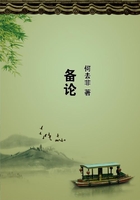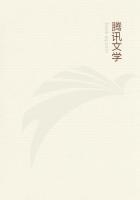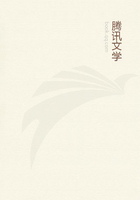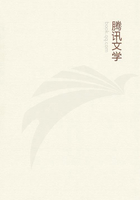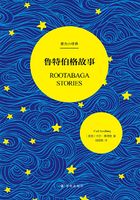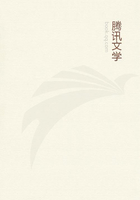Coming out to sea we turned northwards, and in about two hours' sail reached a few huts, called Langundi, where some Galela men had established themselves as collectors of gum-dammar, with which they made torches for the supply of the Ternate market.
About a hundred yards back rises a rather steep hill, and a short walk having shown me that there was a tolerable path up it, Idetermined to stay here for a few days. Opposite us, and all along this coast of Batchian, stretches a row of fine islands completely uninhabited. Whenever I asked the reason why no one goes to live in them, the answer always was, "For fear of the Magindano pirates." Every year these scourges of the Archipelago wander in one direction or another, making their rendezvous on some uninhabited island, and carrying devastation to all the small settlements around; robbing, destroying, killing, or taking captive all they nee with. Their long well-manned praus escape from the pursuit of any sailing vessel by pulling away right in the wind's eye, and the warning smoke of a steamer generally enables them to hide in some shallow bay, or narrow river, or forest-covered inlet, till the danger is passed. The only effectual way to put a stop to their depredations would be to attack them in their strongholds and villages, and compel them to give up piracy, and submit to strict surveillance. Sir James Brooke did this with the pirates of the north-west coast of Borneo, and deserves the thanks of the whole population of the Archipelago for having rid them of half their enemies.
All along the beach here, and in the adjacent strip of sandy lowland, is a remarkable display of Pandanaceae or Screw-pines.
Some are like huge branching candelabra, forty or fifty feet high, and bearing at the end of each branch a tuft of immense sword-shaped leaves, six or eight inches wide, and as many feet long. Others have a single unbranched stem, six or seven feet high, the upper part clothed with the spirally arranged leaves, and bearing a single terminal fruit ac large as a swan's egg.
Others of intermediate size have irregular clusters of rough red fruits, and all have more or less spiny-edged leaves and ringed stems. The young plants of the larger species have smooth glossy thick leaves, sometimes ten feet long and eight inches wide, which are used all over the Moluccas and New Guinea, to make "cocoyas" or sleeping mats, which are often very prettily ornamented with coloured patterns. Higher up on the bill is a forest of immense trees, among which those producing the resin called dammar (Dammara sp.) are abundant. The inhabitants of several small villages in Batchian are entirely engaged in searching for this product, and making it into torches by pounding it and filling it into tubes of palm leaves about a yard long, which are the only lights used by many of the natives.
Sometimes the dammar accumulates in large masses of ten or twenty pounds weight, either attached to the trunk, or found buried in the ground at the foot of the trees. The most extraordinary trees of the forest are, however, a kind of fig, the aerial roots of which form a pyramid near a hundred feet high, terminating just where the tree branches out above, so that there is no real trunk. This pyramid or cone is formed of roots of every size, mostly descending in straight lines, but more or less obliquely-and so crossing each other, and connected by cross branches, which grow from one to another; as to form a dense and complicated network, to which nothing but a photograph could do justice (see illustration at Vol. I. page 130). The Kanary is also abundant in this forest, the nut of which has a very agreeable flavour, and produces an excellent oil. The fleshy outer covering of the nut is the favourite food of the great green pigeons of these islands (Carpophaga, perspicillata), and their hoarse copings and heavy flutterings among the branches can be almost continually heard.
After ten days at Langundi, finding it impossible to get the bird I was particularly in search of (the Nicobar pigeon, or a new species allied to it), and finding no new birds, and very few insects, I left early on the morning of April 1st, and in the evening entered a river on the main island of Batchian (Langundi, like Kasserota, being on a distinct island), where some Malays and Galela men have a small village, and have made extensive rice-fields and plantain grounds. Here we found a good house near the river bank, where the water was fresh and clear, and the owner, a respectable Batchian Malay, offered me sleeping room and the use of the verandah if I liked to stay. Seeing forest all round within a short distance, I accepted his offer, and the next morning before breakfast walked out to explore, and on the skirts of the forest captured a few interesting insects.
Afterwards, I found a path which led for a mile or more through a very fine forest, richer in palms than any I had seen in the Moluccas. One of these especially attracted my attention from its elegance. The stein was not thicker than my wrist, yet it was very lofty, and bore clusters of bright red fruit. It was apparently a species of Areca. Another of immense height closely resembled in appearance the Euterpes of South America. Here also grew the fan-leafed palm, whose small, nearly entire leaves are used to make the dammar torches, and to form the water-buckets in universal use. During this walk I saw near a dozen species of palms, as well as two or three Pandani different from those of Langundi. There were also some very fine climbing ferns and true wild Plantains (Musa), bearing an edible fruit not so large as one's thumb, and consisting of a mass of seeds just covered with pulp and skin. The people assured me they had tried the experiment of sowing and cultivating this species, but could not improve it. They probably did not grow it in sufficient quantity, and did not persevere sufficiently long.

